This article was co-authored by Tiffany Jumaily, MD. Dr. Tiffany Jumaily is a Board Certified Pediatrician and a fellow of the American Academy of Pediatrics (FAAP) based in Los Angeles, California. With over a decade of experience in the medical field, Dr. Jumaily specializes in identifying the root cause of symptoms and presenting manifestations of disease. She holds a BA in Biology from Boston University and an MD from Boston University School of Medicine. Her dedication to combining evidence-based allopathic medicine with complementary and alternative therapies has led to her being featured and cited in various platforms including U.S. News & World Report, Forbes, and CBS Los Angeles.
wikiHow marks an article as reader-approved once it receives enough positive feedback. This article received 14 testimonials and 100% of readers who voted found it helpful, earning it our reader-approved status.
This article has been viewed 566,637 times.
Anemia is a condition in which the tissues and organs in your body are deprived of necessary oxygen because your red blood cell count is too low, or your red blood cells are not functioning properly. There are more than 400 different identified types of anemia, and they fall into three general categories: nutritional, early acquired, or genetic. Although anemia symptoms are basically the same, the treatment varies depending on the type.
Steps
Spotting the General Symptoms of Anemia
-
1Examine your level of fatigue. This is one of the most common symptoms of anemia.[1] To figure out whether your fatigue may be related to anemia, rather than being the result of a few nights with too little sleep, think about the following questions. If your answer is yes, you might have anemia.[2]
- Do you feel tired when you wake up in the morning, and throughout the rest of the day?
- Do you have trouble concentrating and doing well at work or school, because you are so tired?
- Do you lack the energy to accomplish basic tasks and chores, or does doing these activities seem to wipe you out?
-
2Determine whether you feel weak or dizzy. Fatigue can be related to a lot of different conditions, but when it comes along with weakness and dizziness, anemia is certainly something to consider. If you often have to take a seat because you feel too weak or dizzy to stand, you should get tested for anemia.[3]Advertisement
-
3See a doctor immediately if you have severe symptoms. Left untreated, anemia can lead to life-threatening conditions.[4] It's important to make an appointment with your doctor if you experience any of these less common symptoms:
- Numbness or coldness in your feet
- Pale skin
- Rapid or irregular heartbeat
- Shortness of breath
- Chest pain
- Very cold extremities regardless of temperature
Knowing What to Expect at the Doctor's Office
-
1Explain your medical history to your doctor. Since anemia shares symptoms with many other conditions, your doctor may need to ask a lot of questions to determine which course of action to take. Talk to your doctor about the symptoms you are experiencing and give him or her information about your diet, lifestyle and family health history.
-
2Get a CBC blood test. Once your doctor has determined that you may have anemia, this test will be administered to determine the shape and count of your red blood cells.
- If the lab results are positive for anemia, they will also tell the doctor which type of anemia you have.
- Your doctor will work with you to prescribe treatment, which varies according to the type of anemia you have.[5]
- Treatment for nutritional anemia is changes to diet, vitamin and iron and supplements or vitamin B-12 injections. Early acquired or genetic anemia may require red blood cell transfusions or hormone injections.
Understanding the Different Types of Anemia
-
1Check for symptoms of iron deficiency anemia (IDA). This is the most common type of anemia, and it can sometimes be corrected by increasing your intake of iron. You may have IDA if you have experienced the following:
-
2Determine whether you might have vitamin deficiency anemia. This type of anemia results from having too little vitamin B12 in the body. B12 is necessary for the body to produce new blood cells and keep the nervous system healthy. You may have this type of anemia if the following is true:
- You have an autoimmune disorder or intestinal problems that cause you to be unable to absorb vitamin B12 efficiently.
- You don't have enough vitamin B12 in your diet. Since this vitamin is highly concentrated in foods that come from animals, vegetarians and vegans may have trouble getting enough B12.
-
3Ask your doctor about anemia caused by blood diseases. In some cases, anemia is caused by an underlying disease that affects the body's ability to create enough red blood cells to keep the body healthy. To determine whether this may be the case, discuss this with your doctor and undergo the appropriate tests.
- Diseases that affect the kidneys can lower the body's ability to create red blood cells.
- Anemias caused by inherited blood diseases include sickle cell anemia and thalassemia, and a plastic anemia, among others. Some people carry a predisposition for these anemias if one or both of their parents had the condition.
- Acquired anemia is caused by exposure to toxins, viruses, chemicals or drugs that prevent the body from making healthy red blood cells.
Expert Q&A
-
QuestionWho is most at risk for anemia?
 Tiffany Jumaily, MDDr. Tiffany Jumaily is a Board Certified Pediatrician and a fellow of the American Academy of Pediatrics (FAAP) based in Los Angeles, California. With over a decade of experience in the medical field, Dr. Jumaily specializes in identifying the root cause of symptoms and presenting manifestations of disease. She holds a BA in Biology from Boston University and an MD from Boston University School of Medicine. Her dedication to combining evidence-based allopathic medicine with complementary and alternative therapies has led to her being featured and cited in various platforms including U.S. News & World Report, Forbes, and CBS Los Angeles.
Tiffany Jumaily, MDDr. Tiffany Jumaily is a Board Certified Pediatrician and a fellow of the American Academy of Pediatrics (FAAP) based in Los Angeles, California. With over a decade of experience in the medical field, Dr. Jumaily specializes in identifying the root cause of symptoms and presenting manifestations of disease. She holds a BA in Biology from Boston University and an MD from Boston University School of Medicine. Her dedication to combining evidence-based allopathic medicine with complementary and alternative therapies has led to her being featured and cited in various platforms including U.S. News & World Report, Forbes, and CBS Los Angeles.
Board Certified Physician Teenage girls are at a pretty high risk, since they lose a lot of blood via their period. Oftentimes, they're also not eating an iron-rich diet, which can also contribute to anemia.
Teenage girls are at a pretty high risk, since they lose a lot of blood via their period. Oftentimes, they're also not eating an iron-rich diet, which can also contribute to anemia. -
QuestionWhat does feeling anemic feel like?
 Tiffany Jumaily, MDDr. Tiffany Jumaily is a Board Certified Pediatrician and a fellow of the American Academy of Pediatrics (FAAP) based in Los Angeles, California. With over a decade of experience in the medical field, Dr. Jumaily specializes in identifying the root cause of symptoms and presenting manifestations of disease. She holds a BA in Biology from Boston University and an MD from Boston University School of Medicine. Her dedication to combining evidence-based allopathic medicine with complementary and alternative therapies has led to her being featured and cited in various platforms including U.S. News & World Report, Forbes, and CBS Los Angeles.
Tiffany Jumaily, MDDr. Tiffany Jumaily is a Board Certified Pediatrician and a fellow of the American Academy of Pediatrics (FAAP) based in Los Angeles, California. With over a decade of experience in the medical field, Dr. Jumaily specializes in identifying the root cause of symptoms and presenting manifestations of disease. She holds a BA in Biology from Boston University and an MD from Boston University School of Medicine. Her dedication to combining evidence-based allopathic medicine with complementary and alternative therapies has led to her being featured and cited in various platforms including U.S. News & World Report, Forbes, and CBS Los Angeles.
Board Certified Physician Anemic people often feel really tired, or at least more tired than they usually are. Their gums and inner eyelids might also look paler than usual.
Anemic people often feel really tired, or at least more tired than they usually are. Their gums and inner eyelids might also look paler than usual. -
QuestionHow do you stop anemia naturally?
 Tiffany Jumaily, MDDr. Tiffany Jumaily is a Board Certified Pediatrician and a fellow of the American Academy of Pediatrics (FAAP) based in Los Angeles, California. With over a decade of experience in the medical field, Dr. Jumaily specializes in identifying the root cause of symptoms and presenting manifestations of disease. She holds a BA in Biology from Boston University and an MD from Boston University School of Medicine. Her dedication to combining evidence-based allopathic medicine with complementary and alternative therapies has led to her being featured and cited in various platforms including U.S. News & World Report, Forbes, and CBS Los Angeles.
Tiffany Jumaily, MDDr. Tiffany Jumaily is a Board Certified Pediatrician and a fellow of the American Academy of Pediatrics (FAAP) based in Los Angeles, California. With over a decade of experience in the medical field, Dr. Jumaily specializes in identifying the root cause of symptoms and presenting manifestations of disease. She holds a BA in Biology from Boston University and an MD from Boston University School of Medicine. Her dedication to combining evidence-based allopathic medicine with complementary and alternative therapies has led to her being featured and cited in various platforms including U.S. News & World Report, Forbes, and CBS Los Angeles.
Board Certified Physician Eat plenty of iron-rich foods, like animal products. Taking an iron supplement might also help.
Eat plenty of iron-rich foods, like animal products. Taking an iron supplement might also help.
References
- ↑ Tiffany Jumaily, MD. Board Certified Pediatrician. Expert Interview. 16 March 2021.
- ↑ http://www.webmd.com/a-to-z-guides/understanding-anemia-symptoms
- ↑ http://www.webmd.com/a-to-z-guides/understanding-anemia-symptoms
- ↑ http://www.webmd.com/a-to-z-guides/understanding-anemia-symptoms
- ↑ http://www.webmd.com/a-to-z-guides/understanding-anemia-symptoms
- ↑ Tiffany Jumaily, MD. Board Certified Pediatrician. Expert Interview. 16 March 2021.
- ↑ Tiffany Jumaily, MD. Board Certified Pediatrician. Expert Interview. 16 March 2021.
- http://hsc.usf.edu/family/health_education_projects/anemia-tturnquest.htm#symptoms
About This Article
Anemia is a condition where you have a low red blood count and your tissues and organs don’t get as much oxygen as they need. Common symptoms of anemia include feeling fatigued, even after a good night’s sleep, feeling weak or dizzy, and difficulty concentrating. If you experience these symptoms, schedule an appointment with your doctor. If you also have cold or numb feet, shortness of breath, or an irregular heartbeat, see a doctor immediately. Your doctor will usually do a blood test to determine if you’re anemic. You’ll usually be treated by vitamin boosters or other medication. To learn about the different types of anemia and how they’re treated, read on.
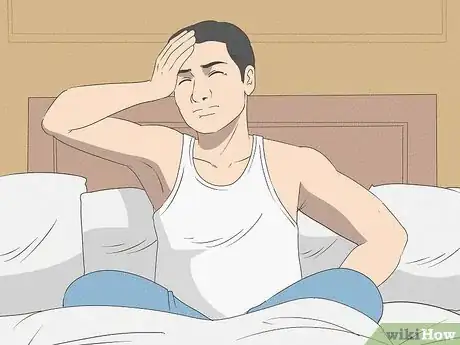

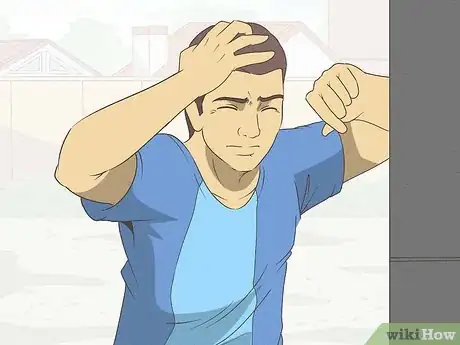
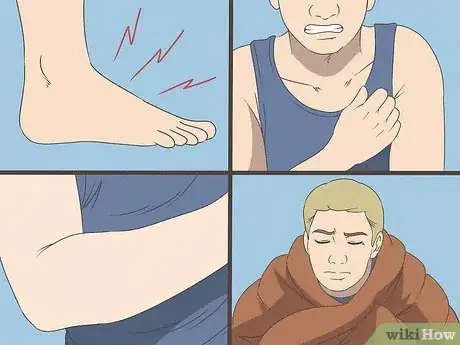
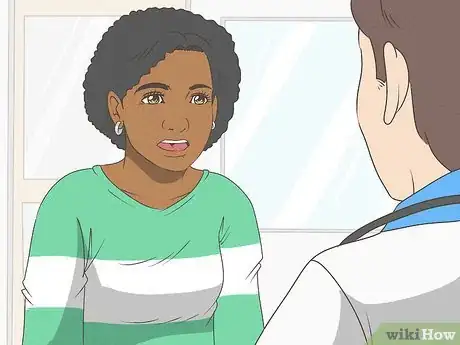
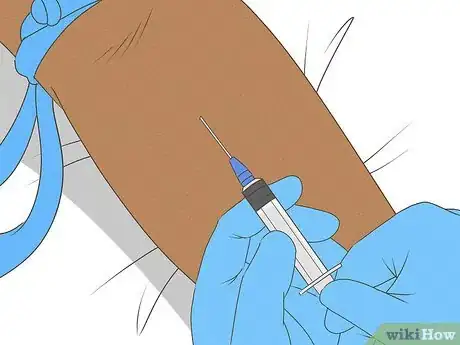
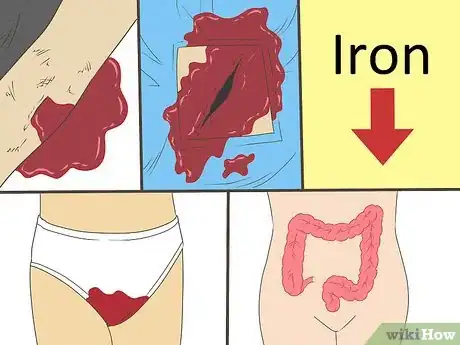
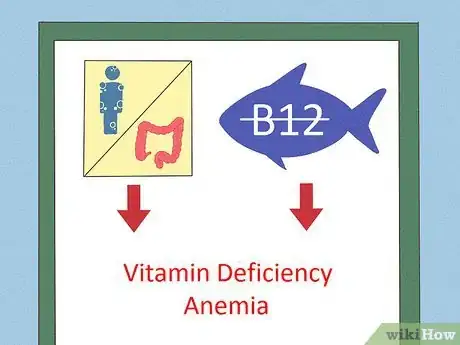
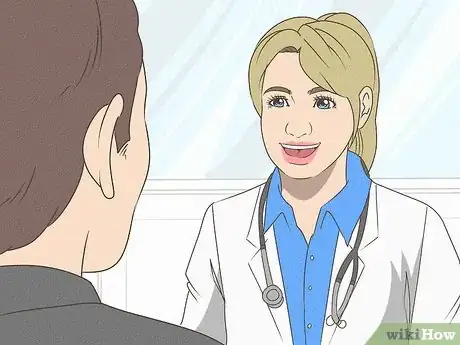
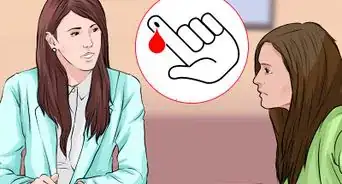
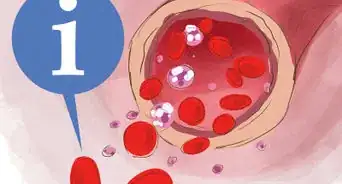
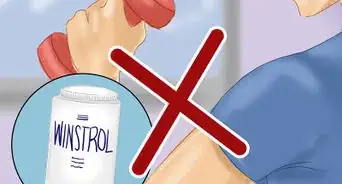
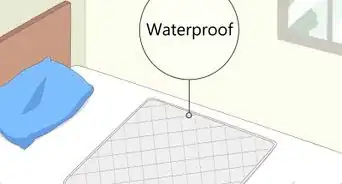
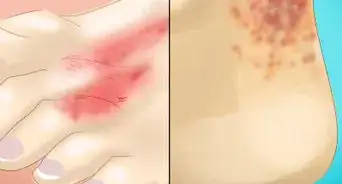
-Step-22.webp)

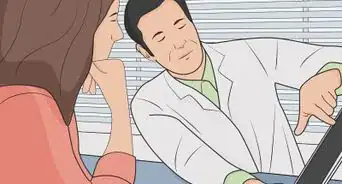









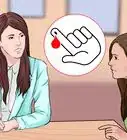
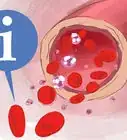
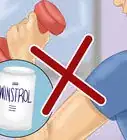




































Medical Disclaimer
The content of this article is not intended to be a substitute for professional medical advice, examination, diagnosis, or treatment. You should always contact your doctor or other qualified healthcare professional before starting, changing, or stopping any kind of health treatment.
Read More...